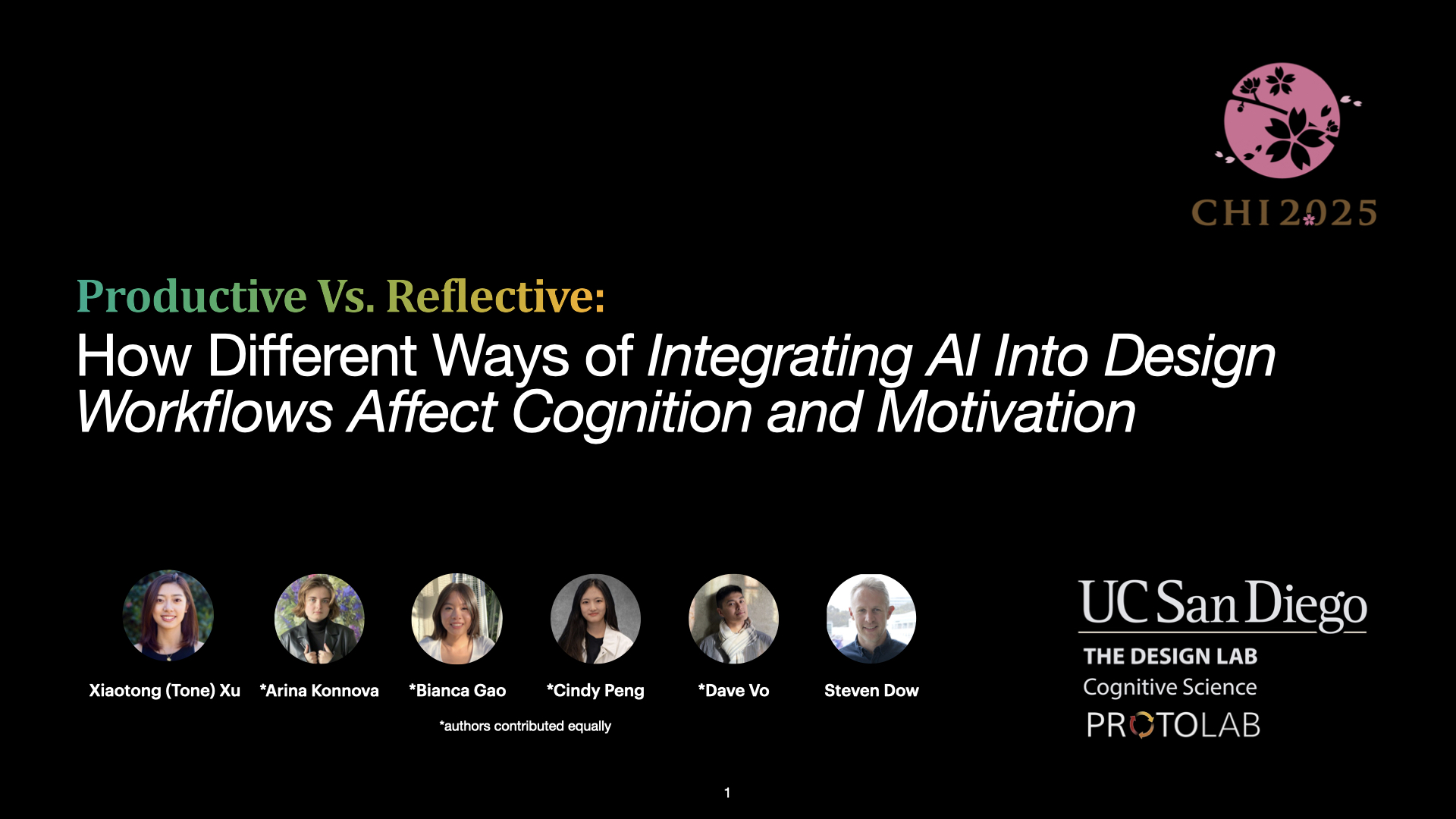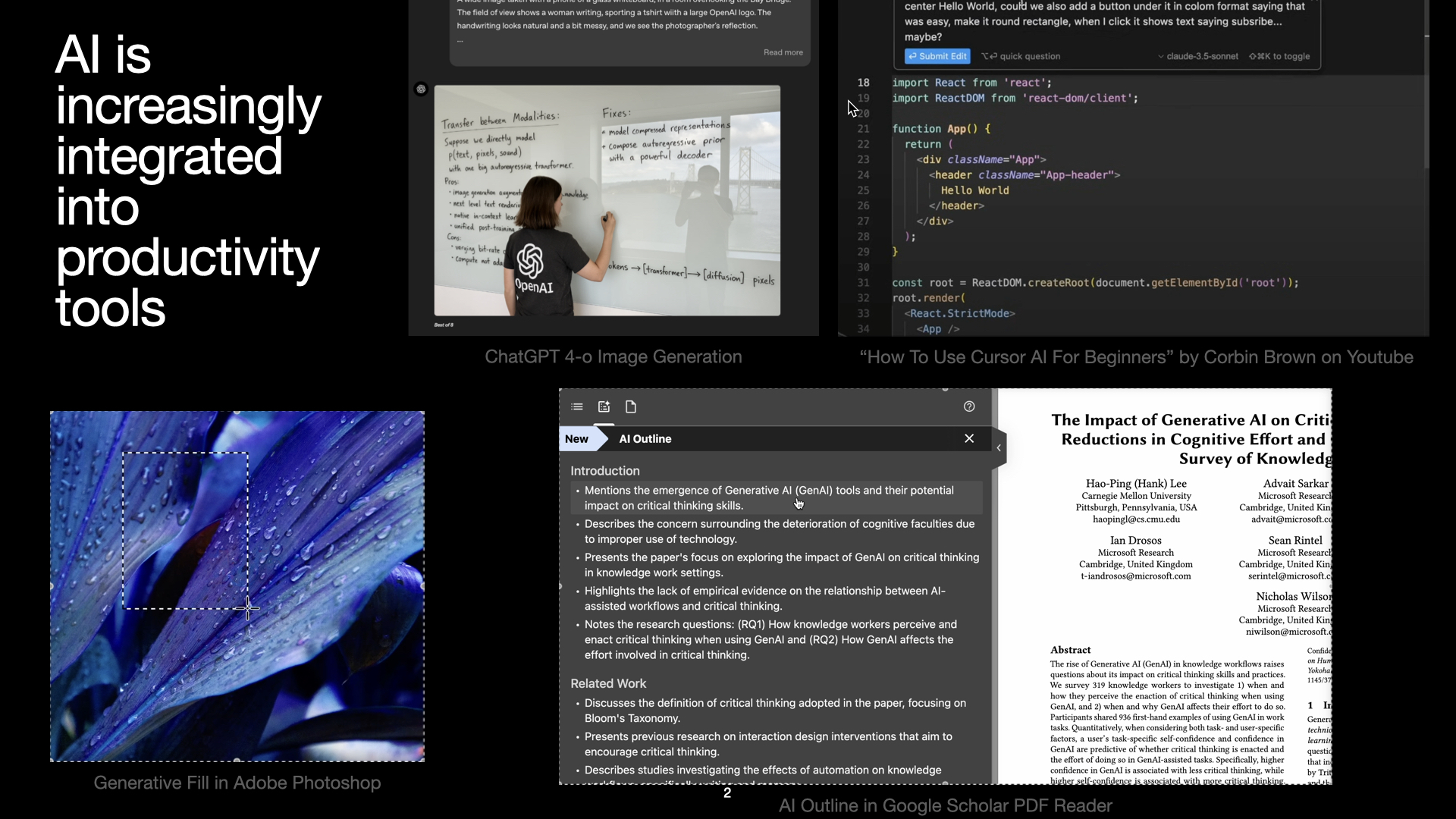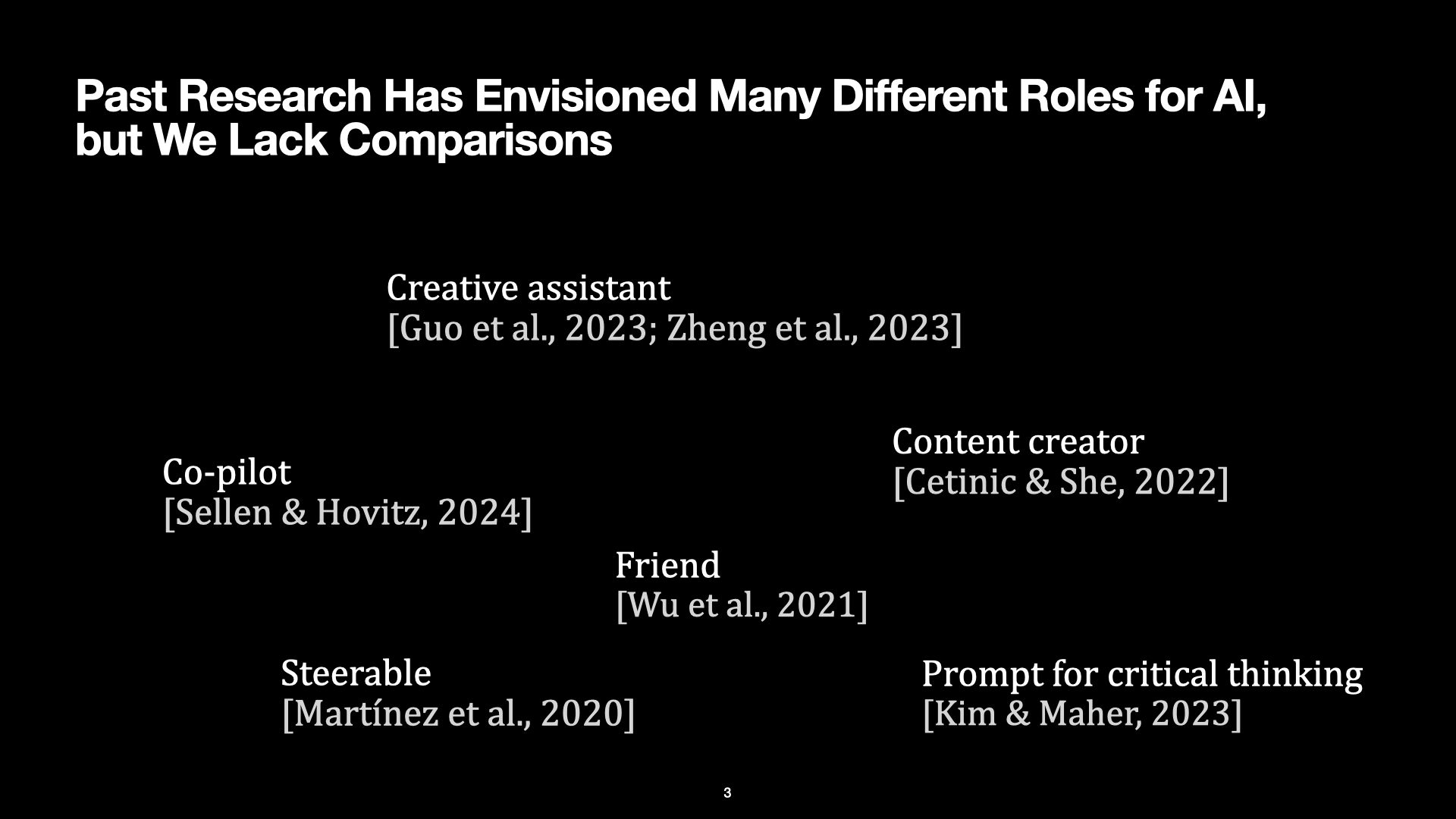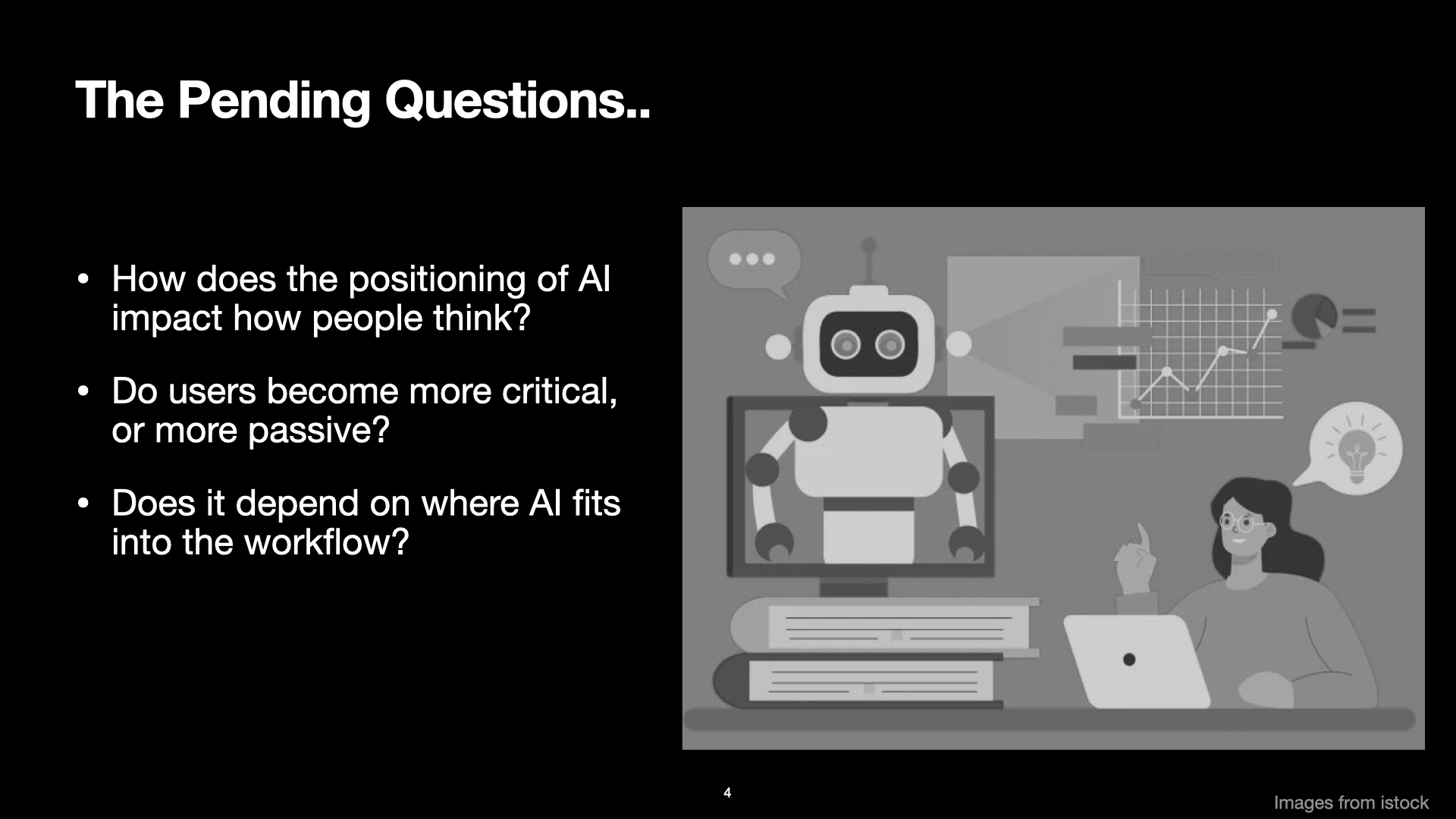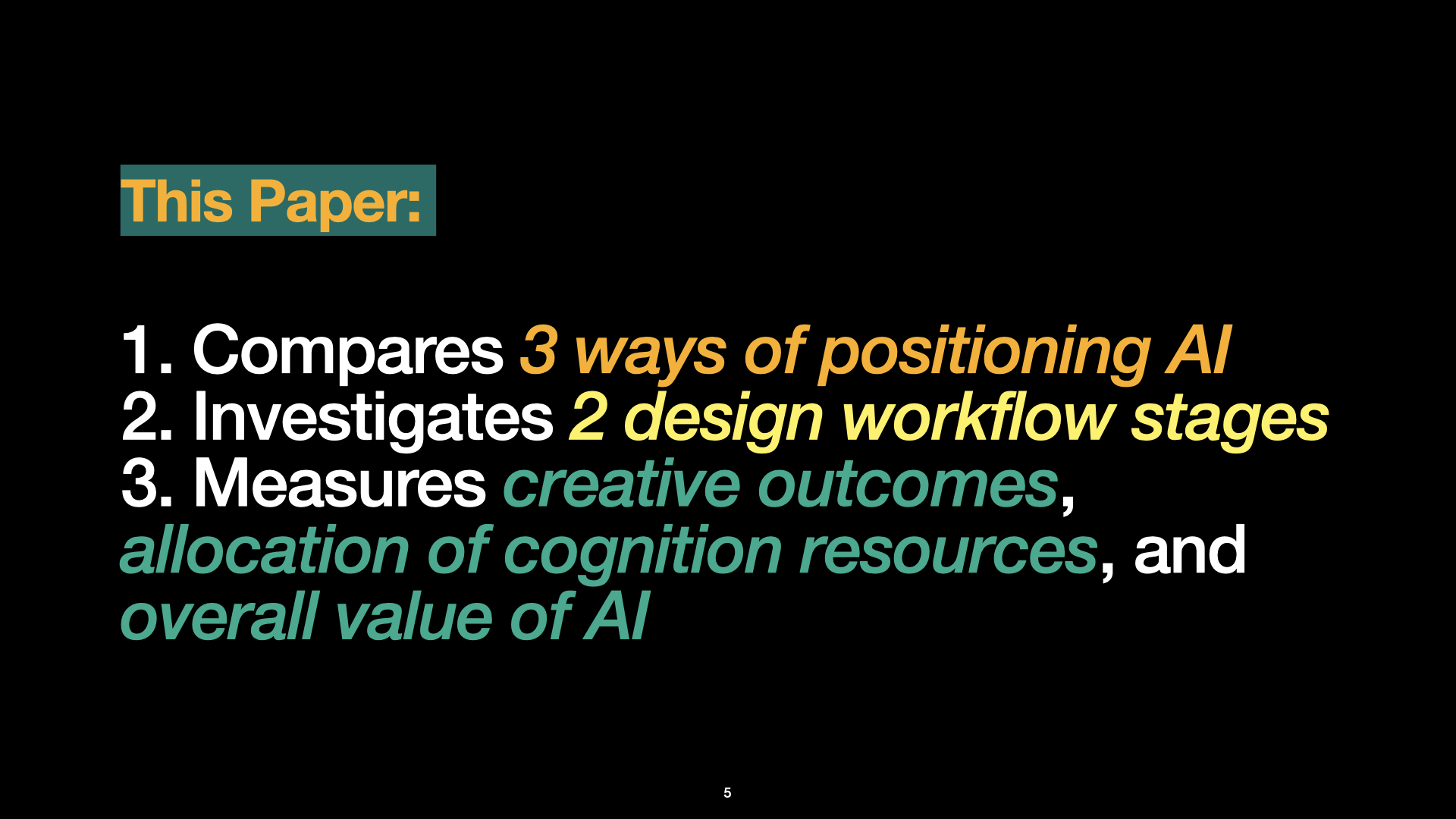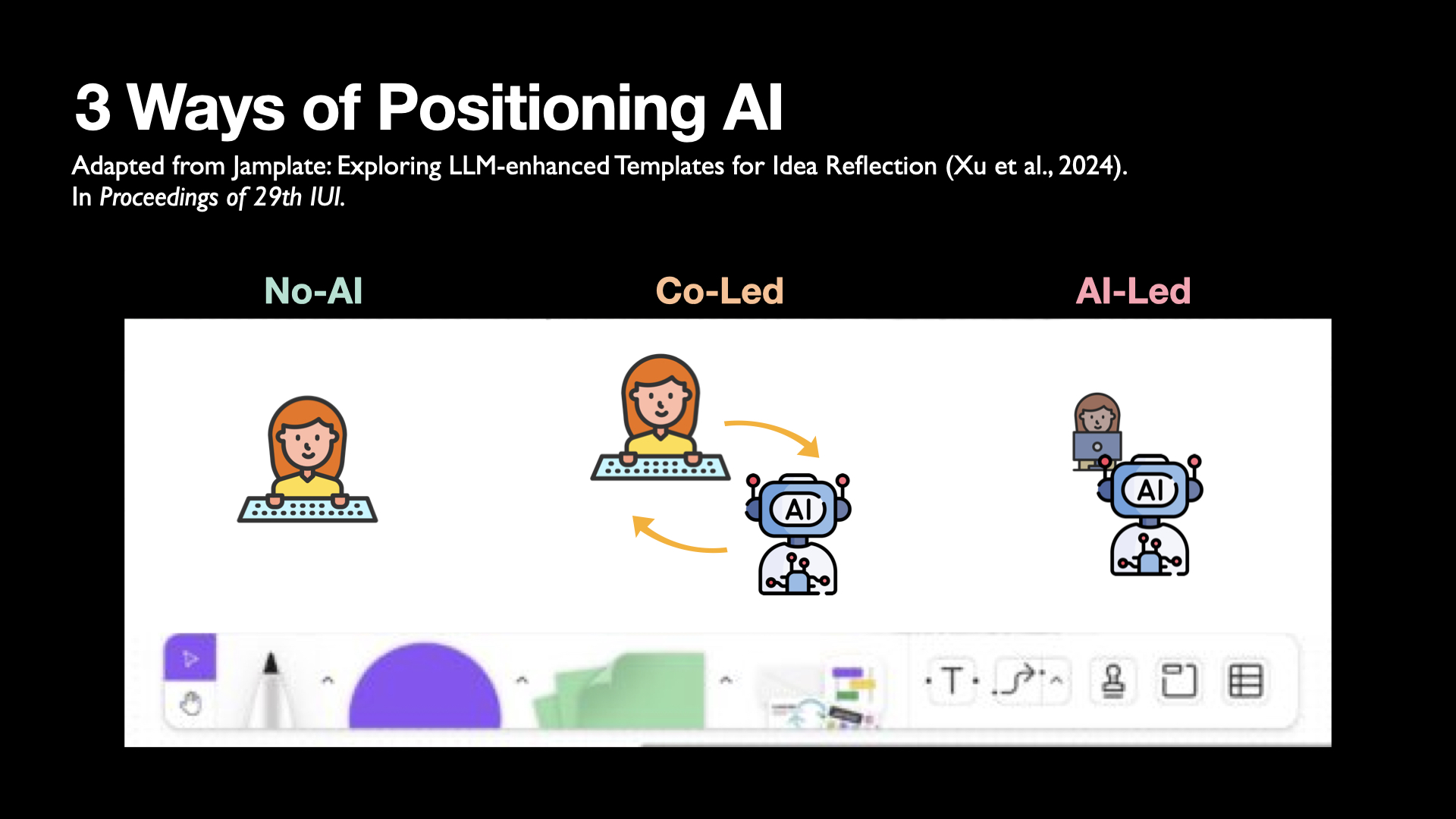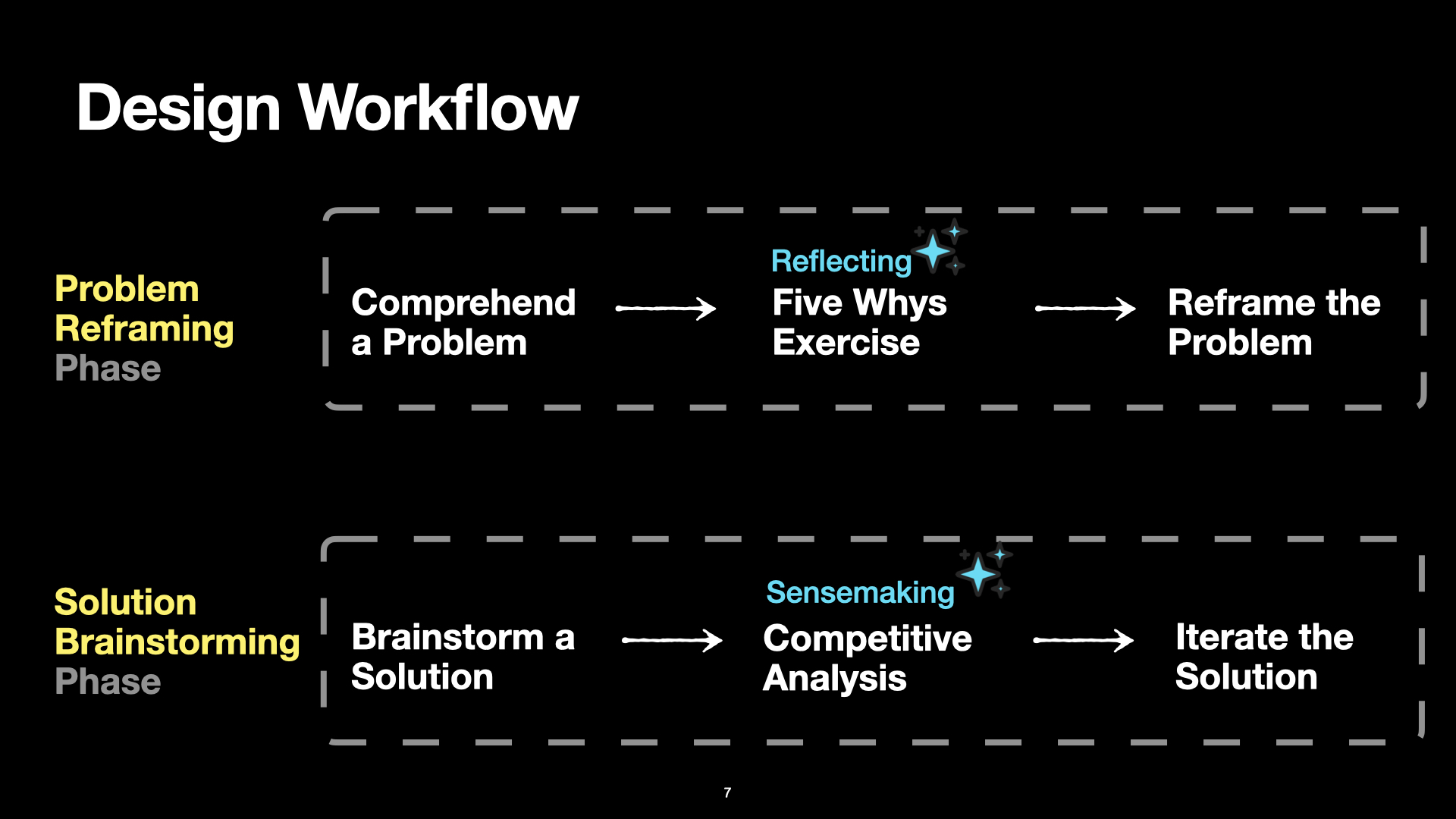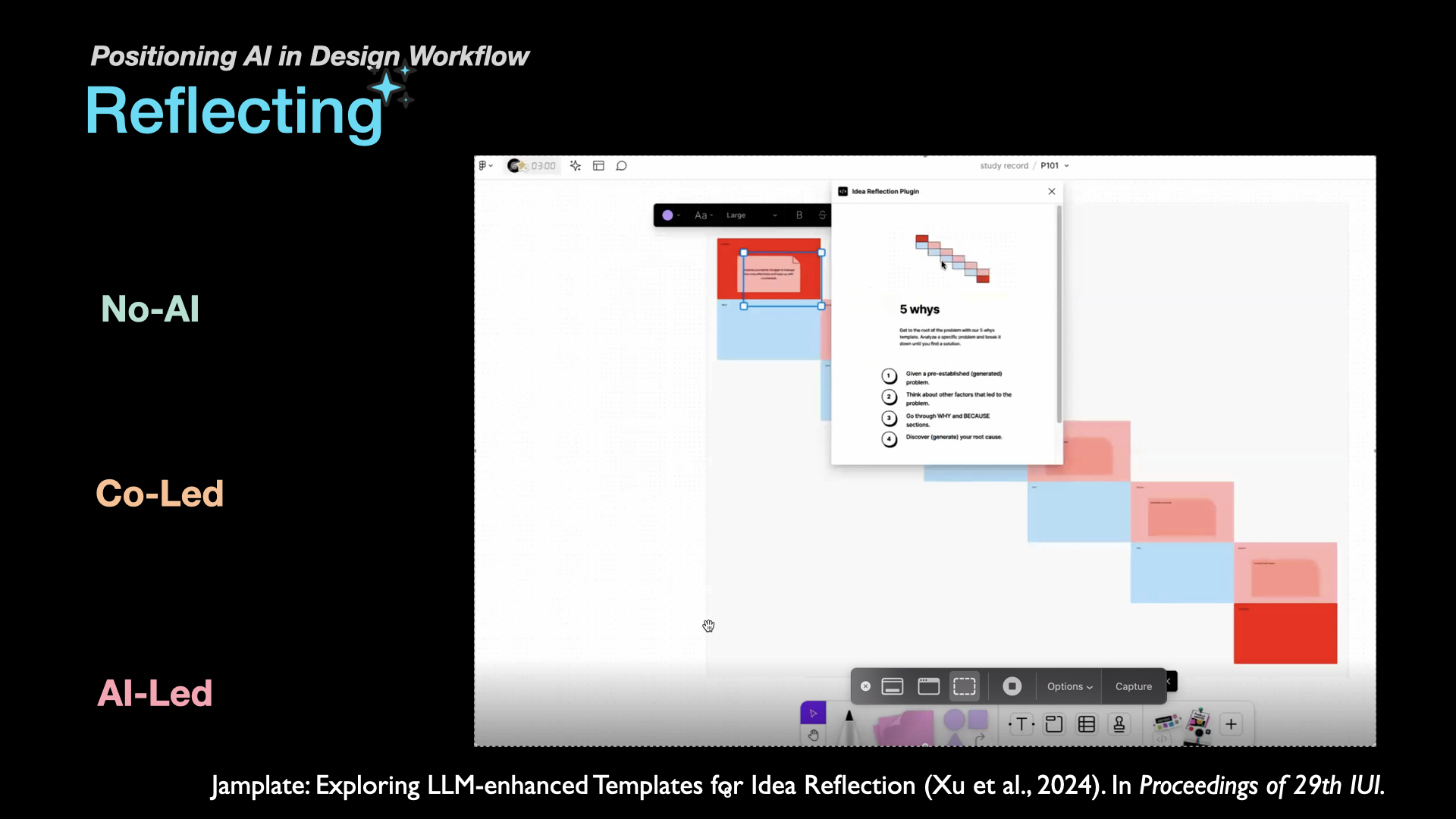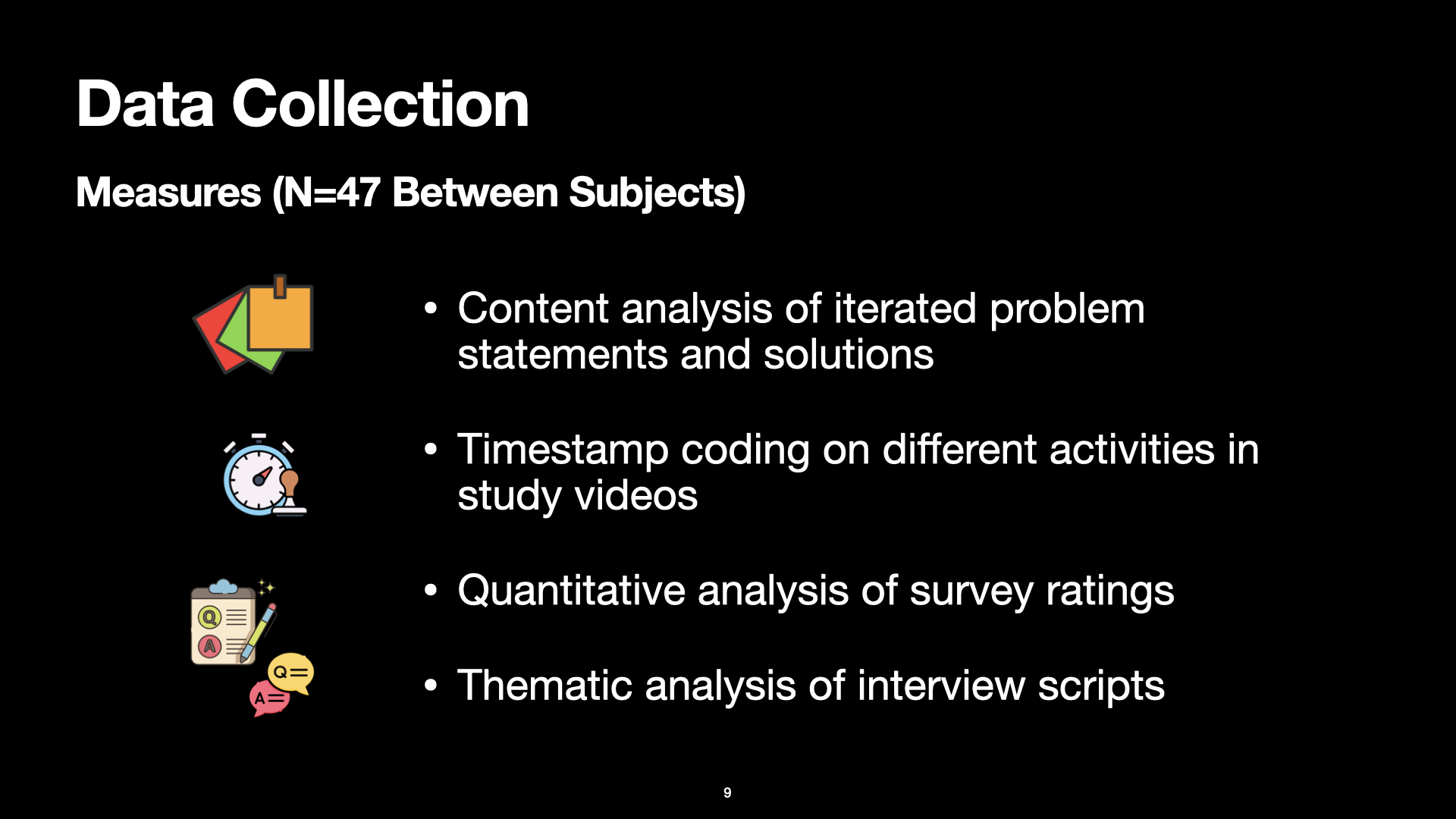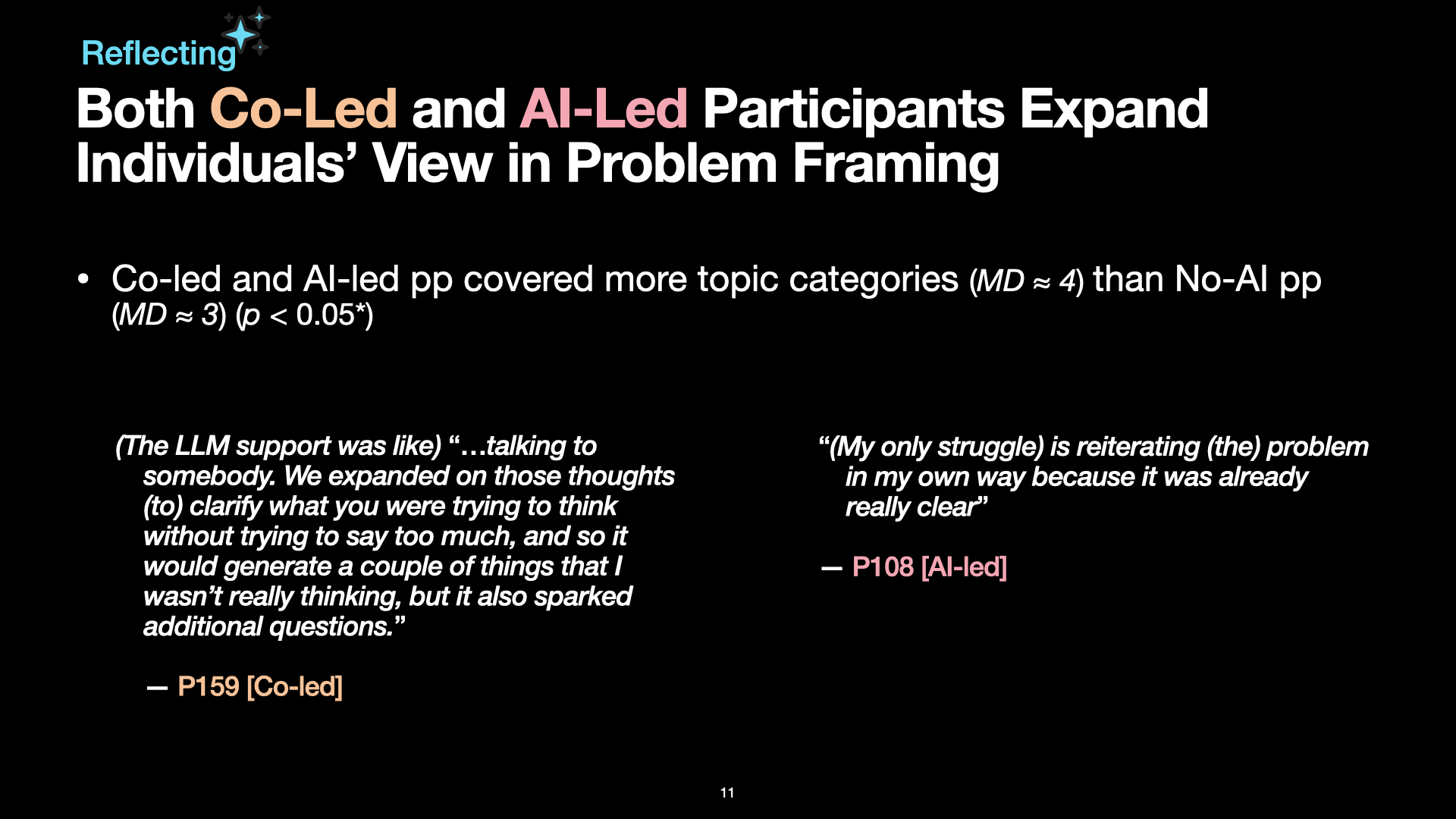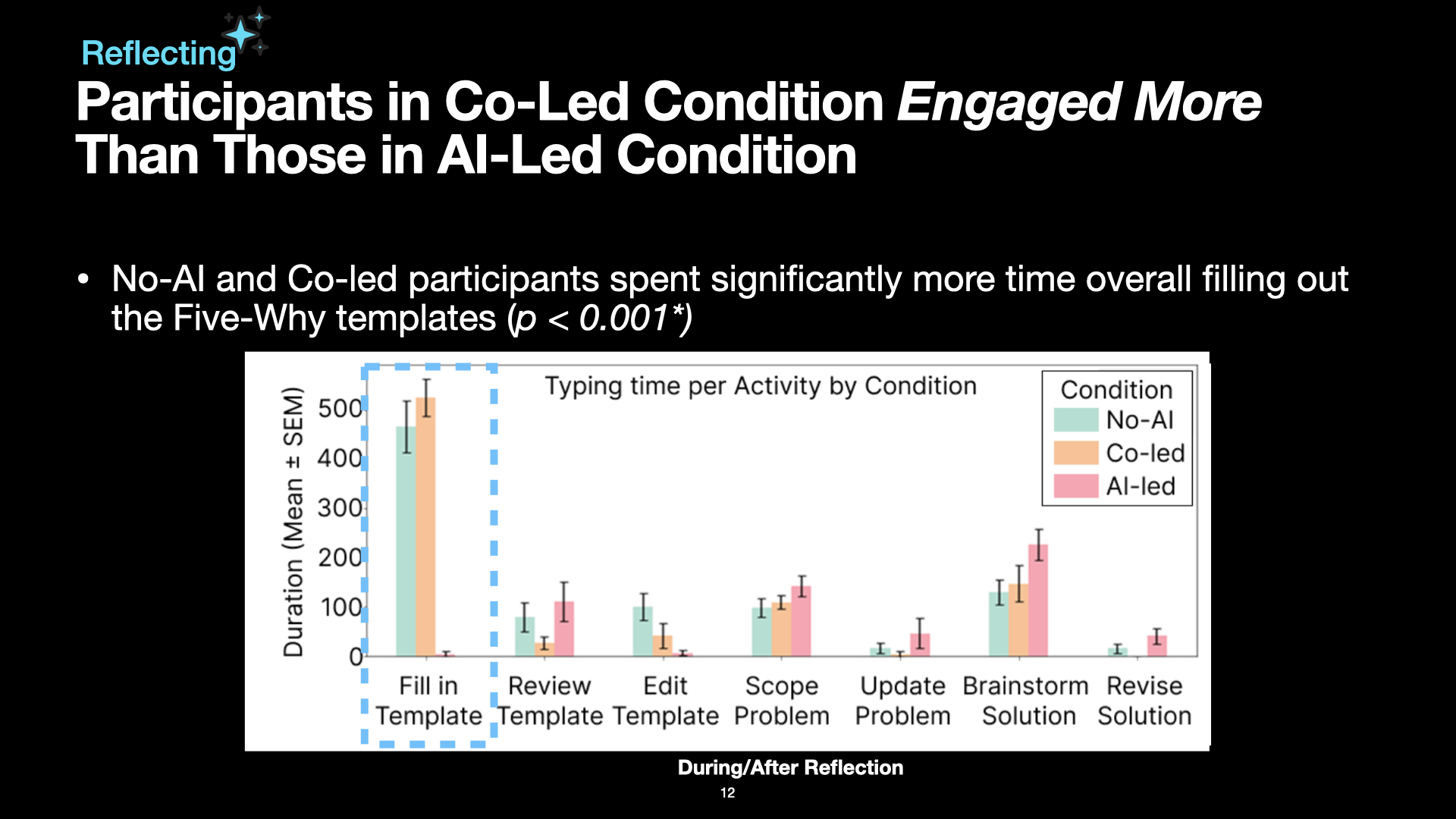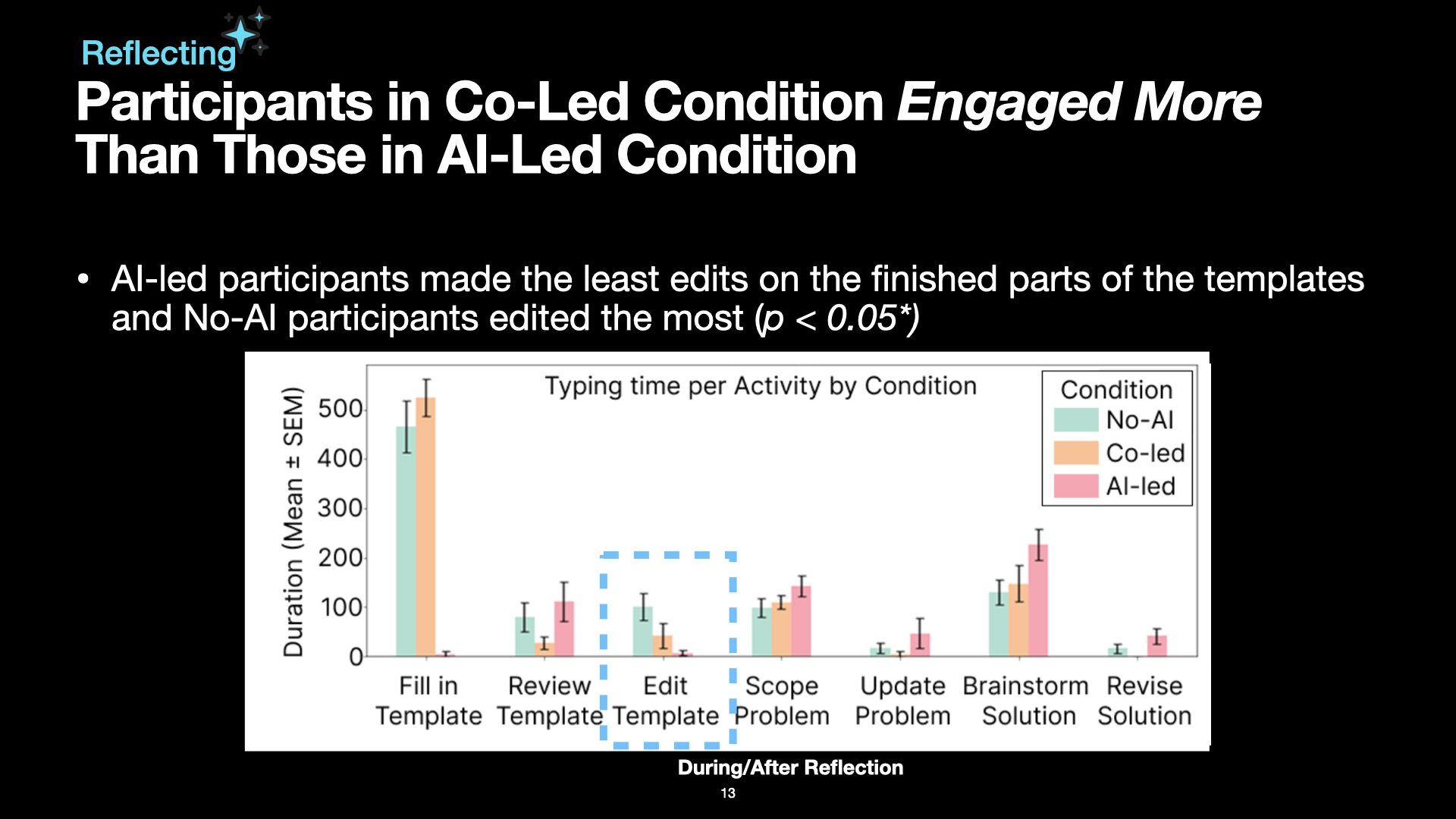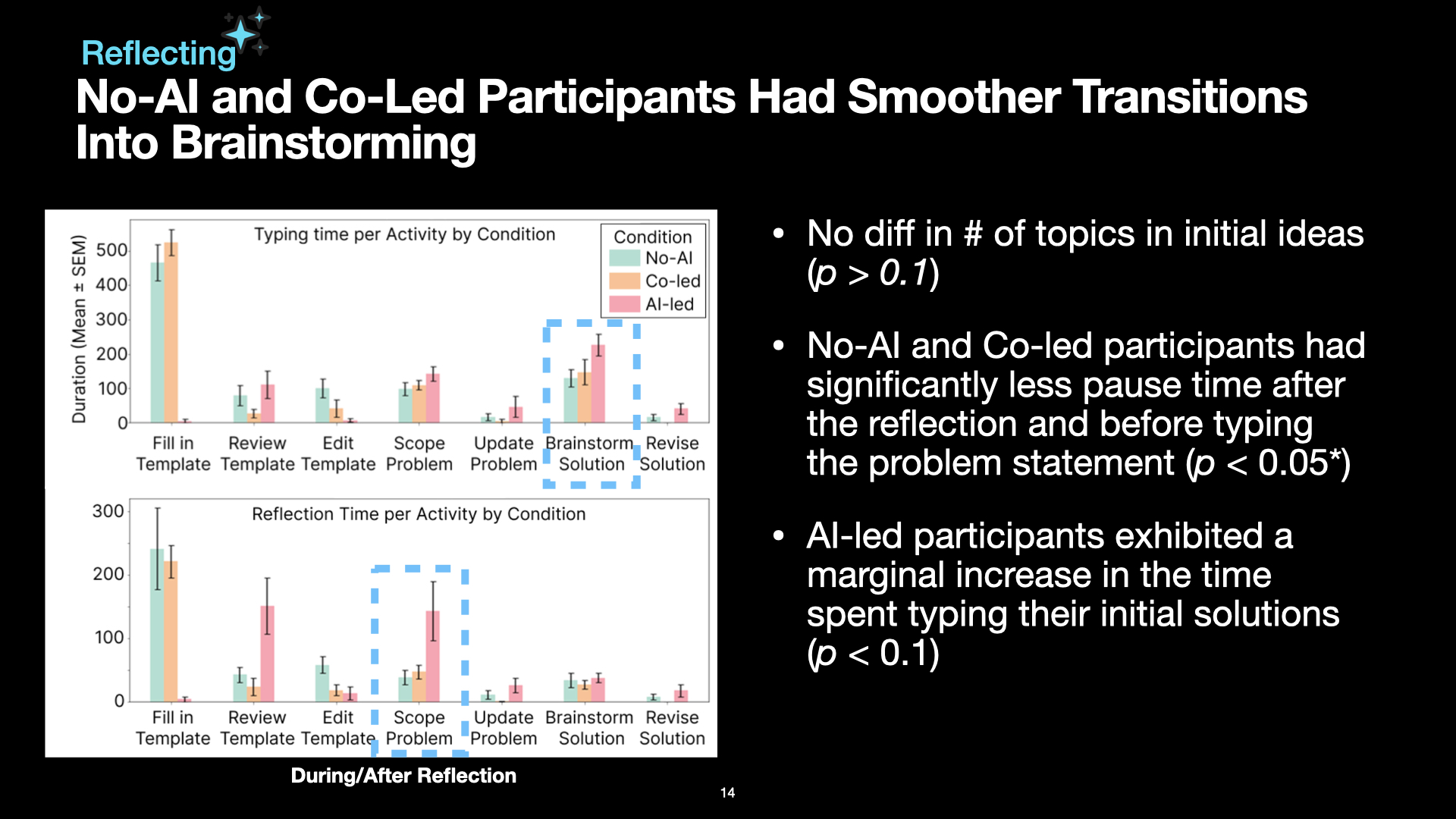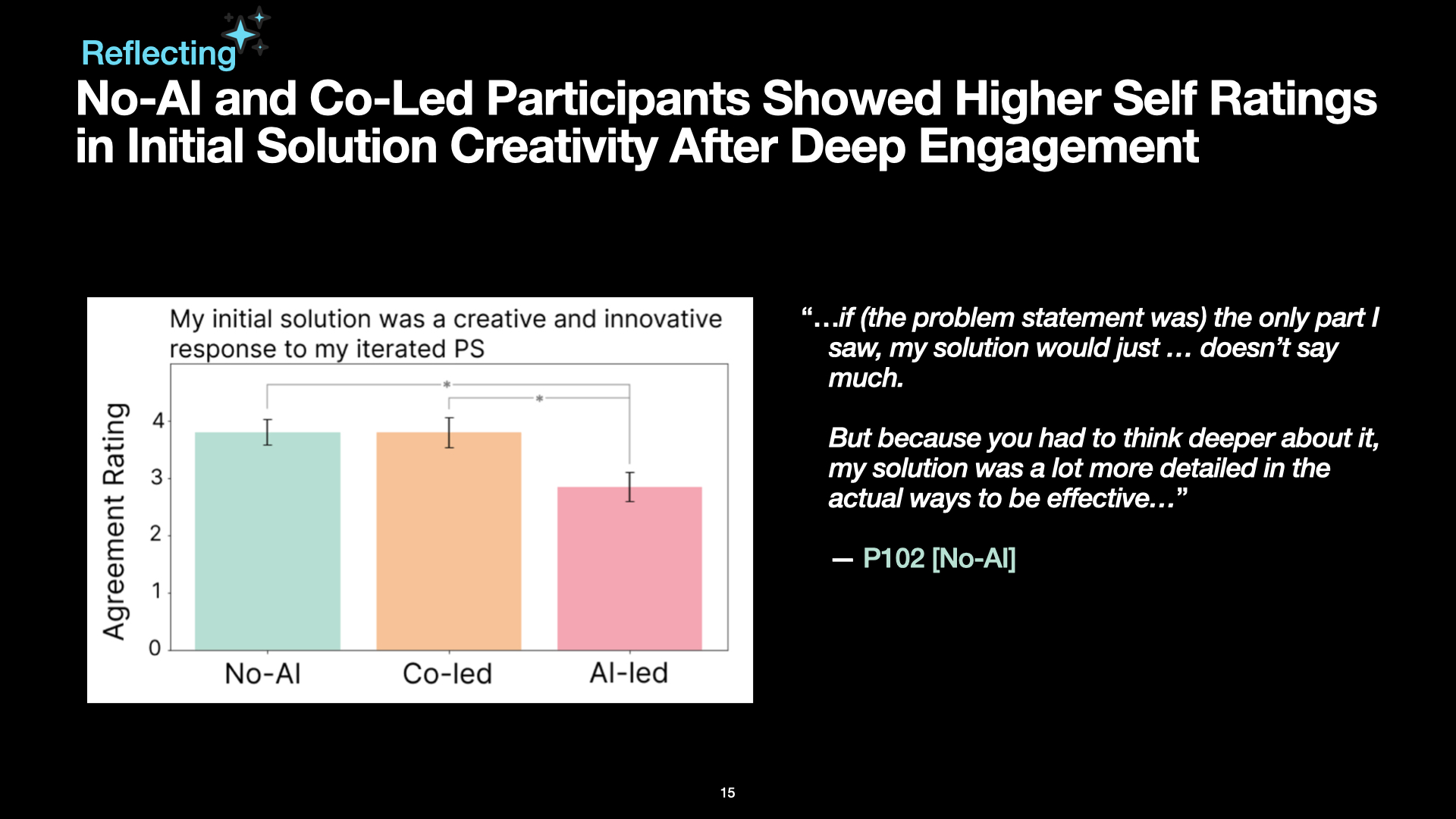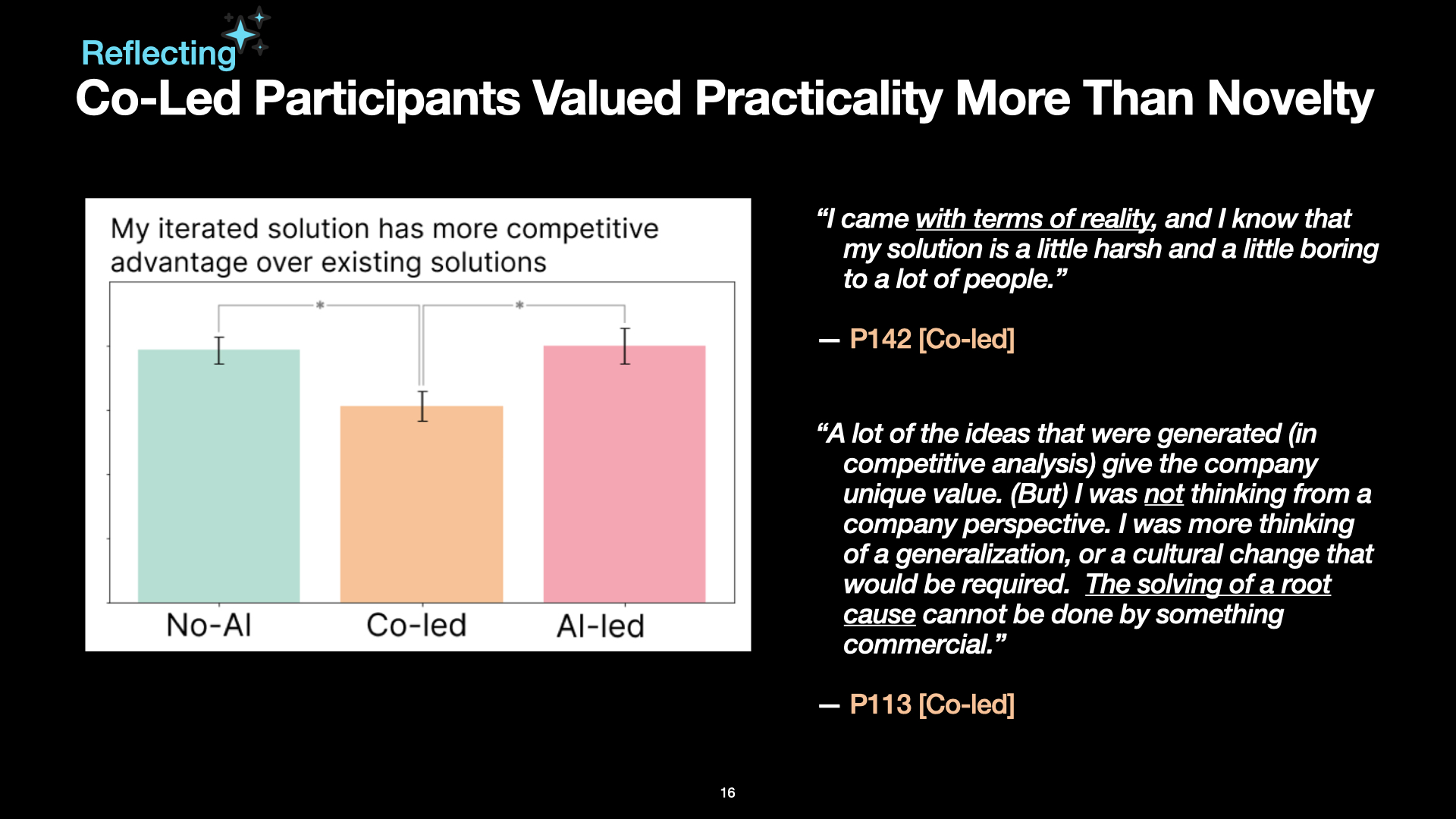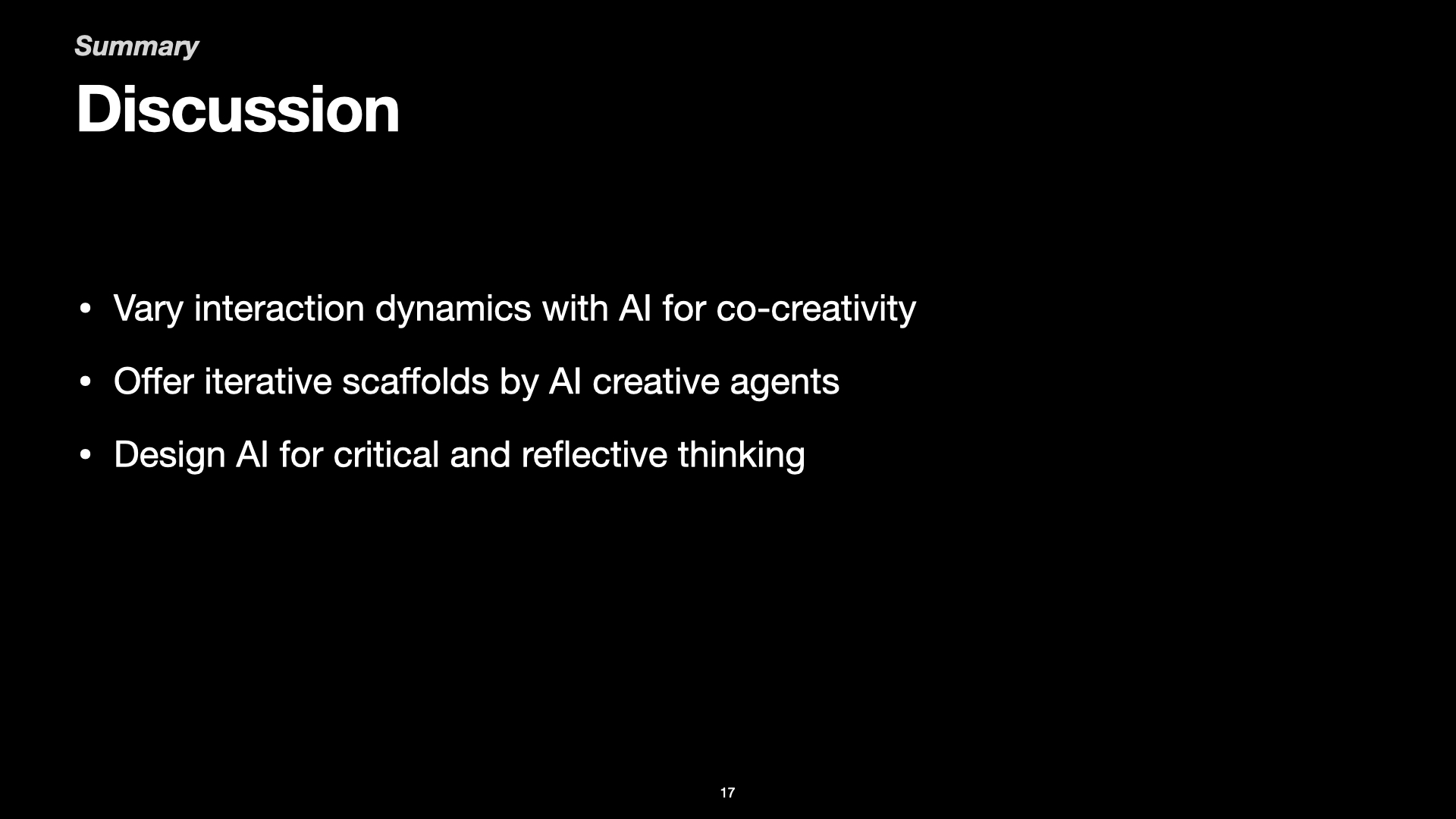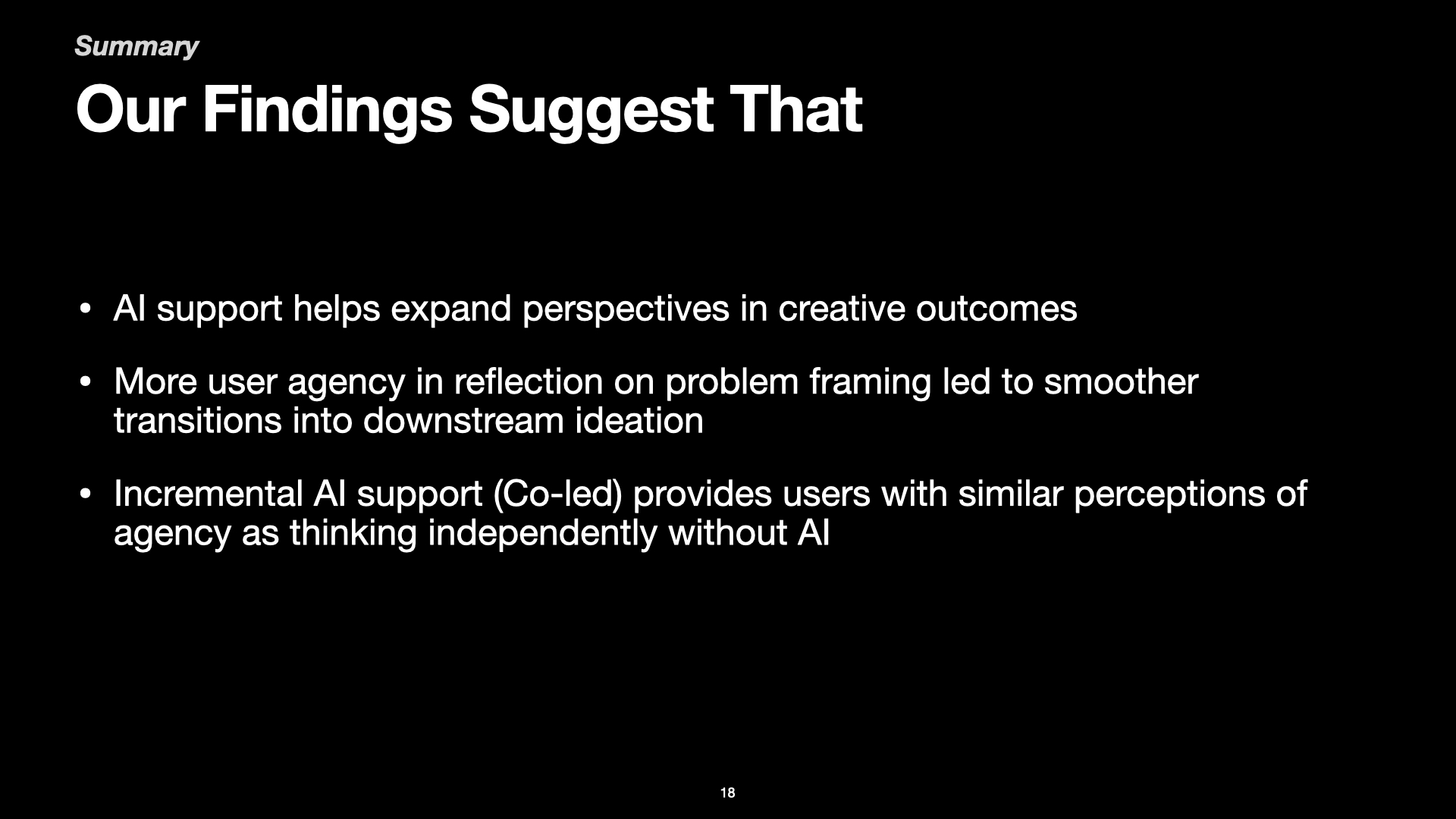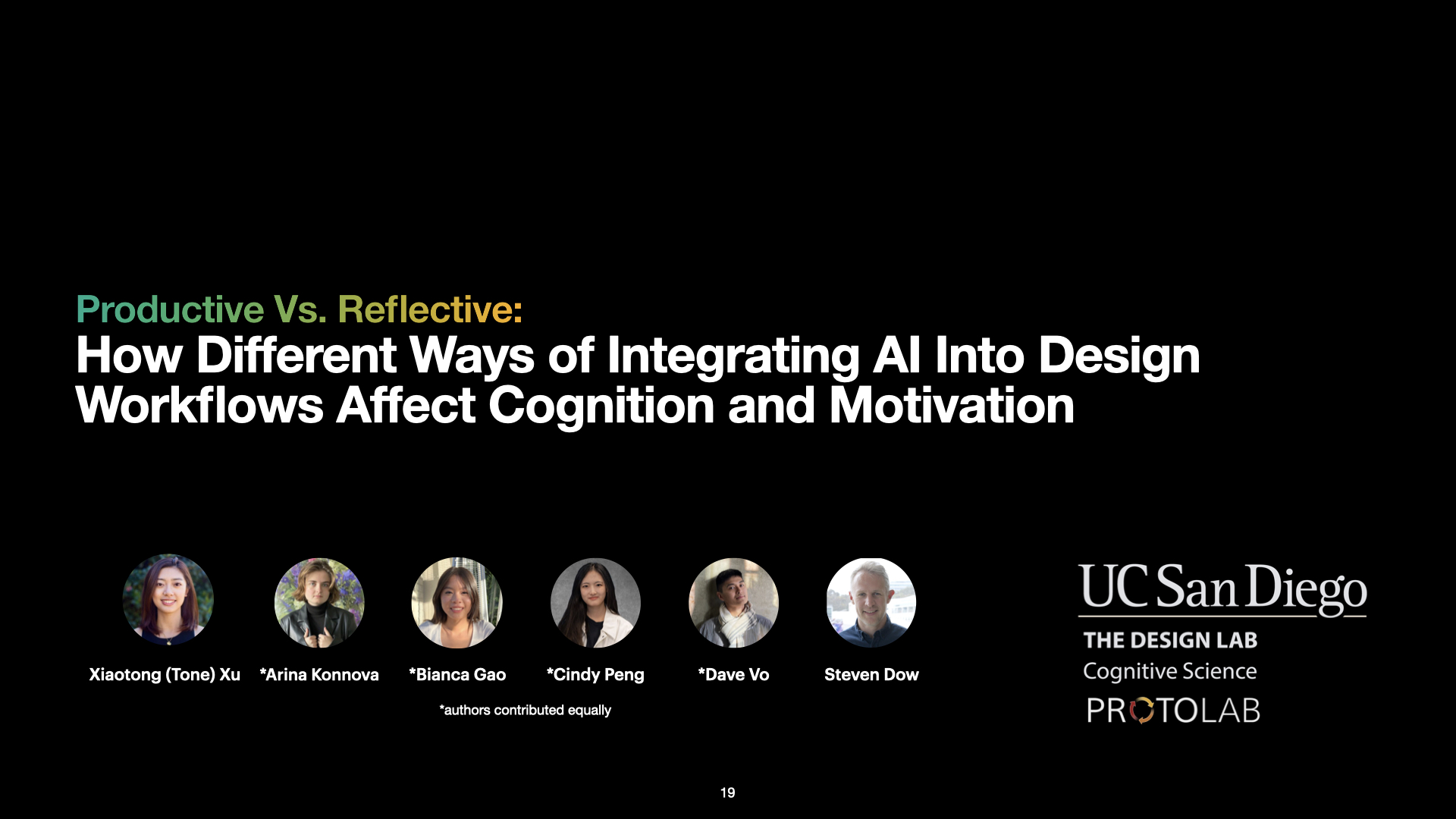Productive vs. Reflective: How Different Ways of Integrating AI into Design Workflows Affect Cognition and Motivation
CHI'25 Yokohama, Japan
An increasing number of tools now integrate AI support, extending the ability of users—especially novices—to produce creative work. While AI could play various roles within such tools, less is known about how the positioning of AI affects an individual’s cognitive processes and sense of agency. To examine this relationship, we built a collaborative whiteboard plugin that integrates an LLM into design templates to facilitate reflective brainstorming activities. We conducted a between-subjects experiment with N=47 participants assigned to one of three versions of AI-support—No-AI, AI input provided incrementally (Co-led) and AI provided all at once (AI-led)—to compare the allocation of cognitive resources. Results show that the positioning of AI scaffolds shifts the underlying cognition: AI-led participants devoted more time to comprehension and synthesis, which yielded more topically diverse problems and solutions. No-AI and Co-led participants spent more time revising content and reported higher confidence in their process.
